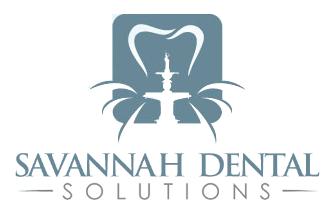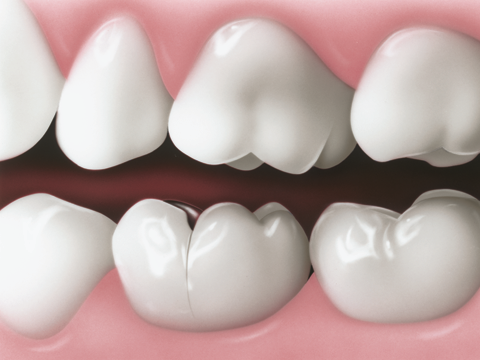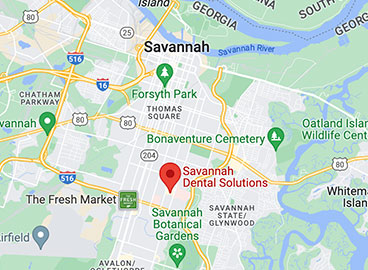A cracked or broken tooth can occur for several reasons, including brittle teeth, teeth grinding, or injury. Even if the crack is invisible to the naked eye or on an X-ray, it can still cause severe pain and lead to more significant dental issues if left untreated.
Common Symptoms and Types of Tooth Damage
If your tooth hurts when chewing or you experience sensitivity to hot and cold, you may have a cracked tooth. Types of cracks include:
- Chipped Tooth: A minor chip in the enamel that may not be painful but can impact appearance.
- Cracked Tooth: A more significant crack that extends deeper into the tooth but doesn’t separate the pieces.
- Split Tooth: When the crack extends from the surface to the root, often resulting in the tooth breaking into segments.
- Vertical Root Fracture: A crack that starts at the root and moves upward, frequently causing pain and swelling.
Why Seek Prompt Dental Care?
Ignoring symptoms of chipped and broken teeth can lead to further complications, such as infections or loss of the tooth. If a tooth breaks or a cracked tooth causes pain, it’s essential to seek dental care. A dentist can assess the damage, often using special tools to detect cracks not visible on X-rays.
Treatment Options for Broken Teeth
The type of treatment depends on the severity of the cracked tooth:
- Dental Crowns: A crown may be placed over a cracked tooth to restore strength and appearance.
- Root Canal: If the crack extends into the pulp, a root canal might be necessary to remove damaged tissue and save the tooth.
- Dental Veneers: For chipped teeth affecting appearance but not structure, veneers can restore a natural look.
- Dental Implants: If a tooth is severely damaged or fractured beyond repair, an extraction followed by a dental implant may be required.
Preventing Future Damage
Protecting your teeth from cracks and breaks involves good oral hygiene and preventive measures, such as:
- Wearing a mouthguard if you grind your teeth or play contact sports.
- Avoiding chewing hard objects like ice or pens that can cause chipped teeth.
- Maintaining regular dental check-ups to catch issues early before they escalate.
When to See a Dentist
If you notice any symptoms, such as sharp pain when biting, sensitivity, or a tooth breaking unexpectedly, see your dentist promptly. Early diagnosis and treatment can prevent more severe issues, such as infections or tooth loss.
How to Handle a Dental Emergency for Cracked or Broken Teeth
If you experience a dental emergency, such as a cracked tooth or tooth breaking suddenly, taking quick action can make a big difference. Start by rinsing your mouth with warm water to clean the area. If there’s swelling, apply a cold compress to reduce inflammation. Avoid chewing on the affected side to prevent further damage. If the broken tooth is causing severe pain, over-the-counter pain relievers can help, but avoid aspirin as it may increase bleeding.
In cases of chipped and broken teeth, try to save any broken pieces and bring them to your dentist. If a dental crown or filling falls out, keep the area clean and avoid eating hard or sticky foods until you can see a dentist. Dental emergencies should be addressed promptly to prevent complications such as infections or worsening of the crack. Call your dentist right away to schedule an appointment and explain your symptoms.
Knowing how to respond quickly can help you manage pain and protect your tooth until professional dental care is available.
Protect Your Smile: Don’t Ignore Cracked or Broken Teeth
Cracked or broken teeth are more than just cosmetic concerns—they can indicate underlying issues with tooth enamel or structural damage. If you experience symptoms like pain, sensitivity, or notice chipped and broken teeth, don’t wait. Seek help from a dental professional who can provide the necessary treatment, whether it’s a dental crown, root canal, or even dental implants. Taking quick action can alleviate pain and protect your smile.
Savannah Dental Solutions
Drs. Chad and Alexandra Schnabel
9A Medical Arts Center
Savannah, GA 31405
Phone: (912) 354-1366
Website: SavannahDentalSolutions.com



